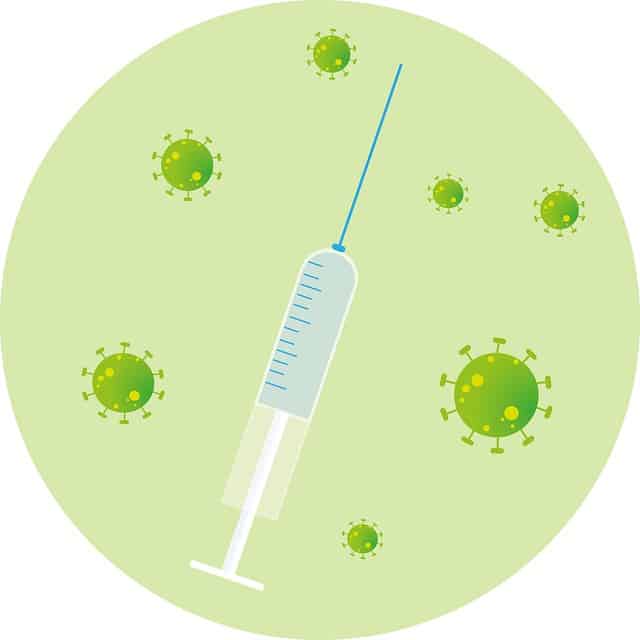The debate is over: are the vaccines a lifesaver or just another health dilemma? It’s a question that ignites impassioned debates at dinner tables, on social media, and beyond. With so much information (and misinformation) out there, it’s completely understandable to feel a bit lost.
Here’s the deal: the vaccine has been a game changer in fighting the virus. Like anything, it has pros and cons. If you’re on the fence or just looking to stay informed, this guide will walk you through the key points. Let’s make sense of it all together.
The Case for the COVID Vaccine—Why It’s Worth It
Protecting Yourself and Loved Ones
First and foremost, the COVID vaccine does what it’s supposed to: protect you from getting seriously sick. It significantly reduces the risk of severe illness, hospitalization, or even death.
It’s like wearing a seatbelt—it doesn’t mean you’ll never get into an accident, but it gives you the best shot at walking away unharmed. And it’s not just about you. When you’re vaccinated, you’re also less likely to spread the virus to those around you, like your family or friends who might have weaker immune systems.
A Safer Way to Build Immunity
Getting vaccinated is like training your immune system without making it go through the full workout. Your body learns to fight the virus but skips the actual illness. That’s a win-win.
Updated Vaccines: Keeping Up with the Variants
Here’s something cool: the vaccines aren’t stuck in 2020. The latest version, the 2024–25 update, is designed to tackle the strains currently causing trouble. For most people, it’s a one-and-done deal—no boosters needed this season.
If you’ve been putting off getting vaccinated because you thought the older versions wouldn’t cut it, this update might be just what you need to catch up.
Safe for Most Health Conditions
And if you’re pregnant or breastfeeding, the vaccine isn’t just safe—it’s recommended. Bonus: it may even help protect your baby.

The Flip Side—What to Consider Before Rolling Up Your Sleeve
Common Side Effects (And How to Manage Them)
Let’s be real—no one loves side effects. The good news? Most of them are mild and short-lived. You might feel a bit tired, get a headache, or notice soreness in your arm. Worst case? Maybe a slight fever or chills for a day or two.
Pro tip: keep a cold pack handy for your arm and drink lots of water. If you’re feeling really uncomfortable, a dose of paracetamol or ibuprofen can help.
Rare but Serious Risks
Symptoms to watch out for include chest pain, difficulty breathing, or a racing heartbeat. If you notice anything unusual, don’t hesitate—get checked out right away.
Are Vaccines Always the Right Choice?
While the vaccine is safe for most people, it’s not for everyone. If you’ve had an allergic reaction to a previous dose or are allergic to specific ingredients, talk to your doctor. They can help you explore other options.
Also, if you currently have COVID, hold off on getting the shot until you’re fully recovered.
| Feature | Pros of Vaccination | Cons of Vaccination |
|---|---|---|
| Effectiveness | Reduces risk of severe COVID-19 | Does not fully prevent infection |
| Protection from complications | Reduces hospitalizations and mortality | Depends on individual health |
| Side Effects | Mild: injection site pain, fatigue, fever | Rare: allergies, myocarditis, pericarditis |
| Health Risks | Reduces long-term risks (e.g., cardiovascular) | Rare post-vaccine complications |
| Adaptation to Variants | Updated to cover recent virus strains | May be less effective for future strains |
| Safety for At-Risk Groups | Recommended for pregnant, elderly, and chronically ill | Requires doctor consultation for some groups |
| Accessibility | Available for most age groups | May not be suitable for people with allergies |
Debunking the Myths—Can You Still Get COVID After Vaccination?
Now, let’s clear up a common misconception: yes, you can still catch COVID even if you’re vaccinated. But here’s the catch—breakthrough infections are usually much milder.
Here’s a simple way to think about it: the vaccine acts as your body’s cheat sheet for tackling the virus. Even if you get sick, you’ll likely recover faster and avoid the worst outcomes. That’s especially important if you’re over 65 or have health conditions that make you more vulnerable.

Weighing the Pros and Cons—Making the Right Call for You
But every situation is unique. If you have concerns—whether it’s about allergies, medical conditions, or even timing—don’t just sit on the fence. Talk to your doctor. They can help you weigh the pros and cons based on your specific health needs.

Cutting Through the Hype—The Bottom Line on COVID Vaccines
At the end of the day, the COVID vaccine is one of the best tools we’ve got to keep serious illness at bay. Yes, there are some risks, but they’re rare. For most people, the trade-off is worth it.
If you’re unsure, start a conversation with your healthcare provider. They’re there to guide you. And remember, staying informed is your best defense.
So, what’s your next step? Book that appointment, get your questions answered, and make a decision that feels right for you and your family. Because when it comes to health, taking action is always better than standing still.





